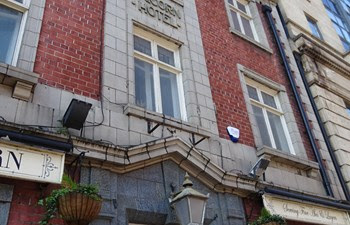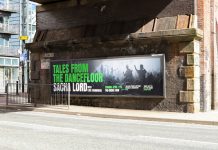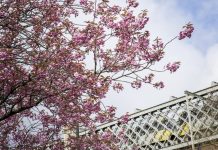A former Charter Street Ragged School and the Unicorn Hotel in Manchester’s Northern Quarter are among the 48 sites that have gained protection in the North West from Historic England.
Charter Street Mission, formerly Charter Street Ragged School and Girls’ Home, is a rare surviving example of social welfare provision from the late 19th century. This girls’ home was unusually combined with a ragged school. Ragged schools were charitable organisations that provided free education to destitute children.
They were developed in working-class areas because working class children, it was argued, were often excluded from Sunday school education because of their unkempt appearance and often challenging behaviour.Various original features inside this building remain, including timber cubicles, the kitchen range, a fireplace and the floor and wall finishes.
The Unicorn Hotel in Manchester’s Northern Quarter, built in 1924, is a rare example of an inter-war pub, and these pubs are a rare find in this city.
Inter-war ‘improved’ or ‘reformed’ pubs stemmed from a desire to cut back on the amount of drunkenness associated with conventional Victorian and Edwardian pubs. These inter-war pubs were generally more spacious than Victorian and Edwardians pubs, often with a restaurant, function rooms and gardens for a whole mix of people to visit. The design and layout of the Unicorn illustrates this movement of national social and cultural significance.
Other sites in the North West include the wreckage of the Lelia which lies in Liverpool Bay and is one of the most historically-significant wrecks in the North West. Built in Liverpool late in the American Civil War (1861-1865), it was a technically advanced, purpose-built blockade runner secretly ordered on behalf of the Confederate Government.
Leaving Liverpool for Bermuda on its maiden voyage on 14 January 1865, the Lelia sank in Liverpool Bay in stormy weather with the loss of 47 lives.
The wreck was identified when a bell marked ‘Lelia 1864’ was discovered by a local diver. In 2017, Historic England commissioned an assessment of the Lelia, as part of a larger project to carry out a national overview of vessels with early iron and composite hulls.
Liverpool’s Piazza Fountain, known locally as the Bucket Fountain, is a kinetic water sculpture. It was made in the late 1960s by renowned Welsh fountain designer Richard Huws and is the only surviving example of his water sculptures. The fountain includes 20 buckets set at different heights which tip when filled with water. The sounds created by the falling water are intended to sound like a stormy sea to symbolise Liverpool’s importance as an international port city.
The two-tiered spray fountain in St Anne’s on sea Promenade Gardens stands in an ornamental planted area. The richly detailed design is playful, reflecting the seaside location. It is topped by a putto (cherubic child) and decorated with pelicans and relief scenes of a squirrel, dragonfly and bird and another putto wearing a flower as a hat and sailing a boat crafted from a leaf. The whole fountain resembles an elaborate water plant.
The drinking fountain, though less elaborate, is richly decorated with birds and flowers inspired by the natural world.
Both cast-iron fountains, dating from around 1900, are the work of Walter MacFarlane and Company from Glasgow. MacFarlane’s were one of the best-known suppliers of cast-iron structures in the world.
More than 500 historic places have been added to the National Heritage List for England this year.
Catherine Dewar, North West Director of Historic England said:
“A fascinating range of historic buildings and sites are listed each year, and 2019 is no exception. A kinetic water sculpture and a gun running ship from the American Civil War are among the quirkier things to receive protection this year in the North West. By celebrating the extraordinary historic sites which surround us we hope to inspire in people a greater interest in our shared heritage, and a commitment to pass it on.”







